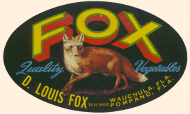May we remind you: please be self-restraint and be a good tourist to mold a well-mannered imagination.
So read the sign welcoming me to Beijing’s Jingshan Park. To the degree I understood it, I honored it. My “well-mannered imagination,” however, had unruly ideas of its own.
If China is a nation of 1,330,313,812 people, where were they? If one in every five people on the planet is a resident of China, did they prefer to reside indoors? While Japanese and Korean tourists abounded, with touring Chinese supplementing their numbers, the locals were notably scarce. Our small gaggle of journalists looked for telling signs—pets, children, laundry, waiting lines, wild life and indigenous music—and came up with vendors and trinkets, service people and shop clerks, humming bikes and still waters. When the loudest sounds in a country emanate from Buddhist temples, a New Yorker has to ask: is this Nirvana or Neurasthenia?
 |
The plaque, above, urging the reader to “Take the initiative to classify discards of paper… or gourd skin,” also tells him or her to “Cherish the resources,” “Don’t talk or laughter loudly in the scenic area,” “Don’t shin or overstep the rockery” and “Don’t urinate or defecate.” No one in my company did any of the latter things in my presence.
Not with reminders like these:
China teems with culture on the calm. Tiananmen Square is a procession of the orderly. The Chinese have become Olympic smilers. I didn’t hear raised voices. Everything is a negotiation. Even navigating large vehicles in heavy traffic is a negotiation.
If any sign exists that says “No raised voices,” I didn’t see it. So I raised mine. I sent a pair of cotton slacks to be washed and ironed at the Grand Hyatt, Taipei. I told them the bottom hems were frayed before they told me. “Just do the best you can and don’t worry about it,” I said. Over the next six phone calls from housekeeping and the laundry, I found half a dozen additional ways to tell them the same thing, not to concern themselves with the pants, just do the best they could, that would be fine. When I returned to my room at 11:30 that evening, my phone was ringing. The seventh person was calling to tell me my pants were damaged. Is it possible the “Banana Republic” label intimidated them? I certainly didn’t. A gentleman came to my door. Out of patience, I raised my voice. He smiled. And they did a beautiful job.
Maybe this sums it up:




